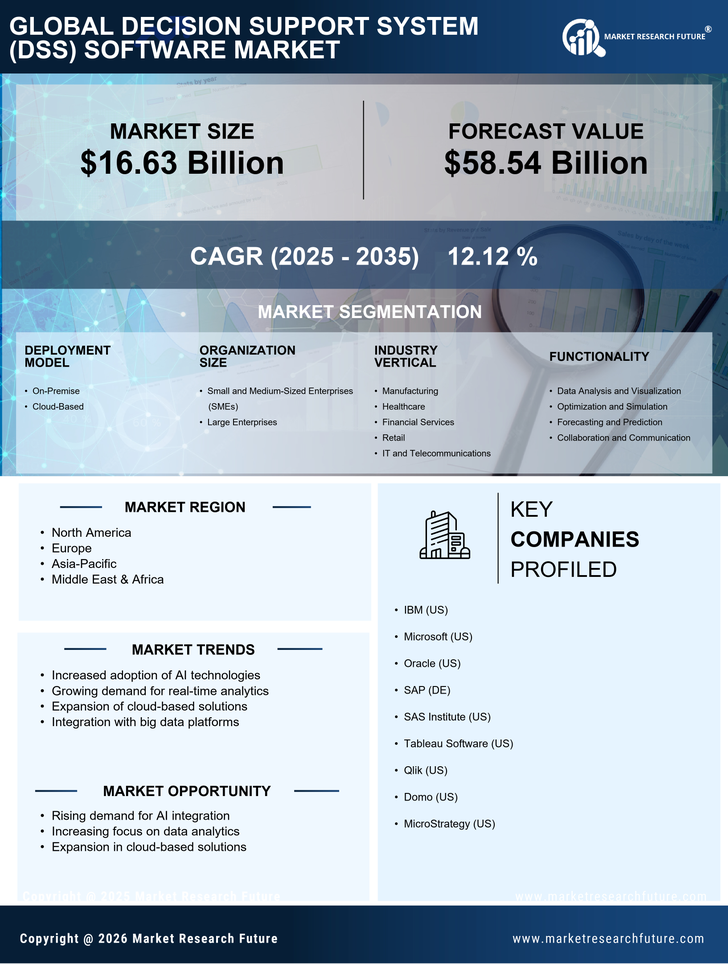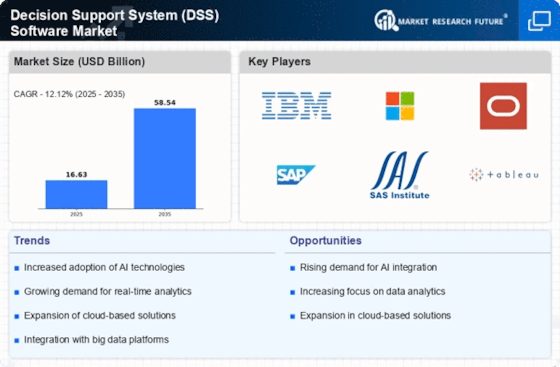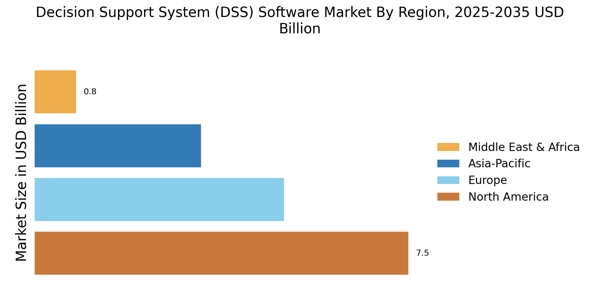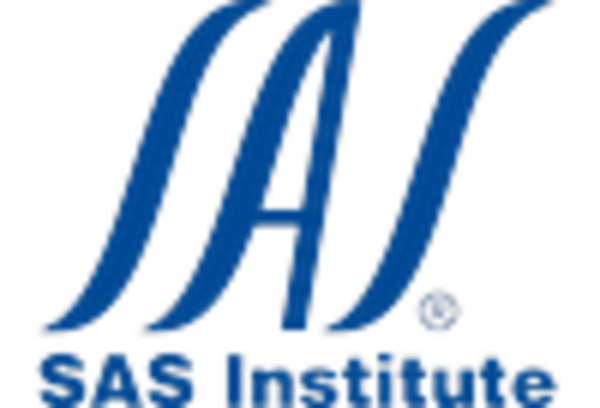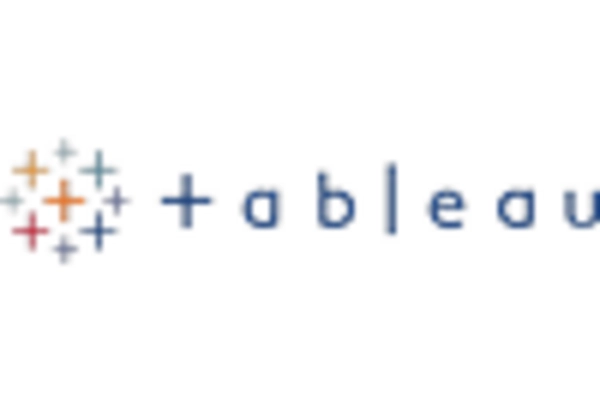Advancements in Technology
Technological advancements are playing a pivotal role in shaping the Decision Support System (DSS) Software Market Industry. Innovations in machine learning, big data analytics, and cloud computing are enhancing the capabilities of DSS software, allowing for more sophisticated data analysis and visualization. These advancements enable organizations to process and interpret complex datasets more efficiently, leading to improved decision-making processes. The integration of advanced algorithms and predictive analytics within DSS solutions is expected to drive market growth, as businesses seek to harness the power of technology to gain a competitive edge. Furthermore, the increasing availability of high-quality data is likely to fuel the demand for advanced DSS tools, making technology a key driver in the evolution of the market.
Growing Focus on Business Intelligence
The Decision Support System (DSS) Software Market Industry is witnessing a growing focus on business intelligence (BI) as organizations strive to enhance their analytical capabilities. The integration of DSS software with BI tools allows for a more comprehensive approach to data analysis, enabling organizations to derive actionable insights from their data. This trend is reflected in the increasing investment in BI solutions, which is projected to reach over 30 billion dollars by 2026. As businesses recognize the importance of data in driving strategic initiatives, the demand for DSS software that complements BI tools is likely to rise. This synergy between DSS and BI is expected to create new opportunities for market players, further propelling the growth of the DSS software market.
Increased Collaboration and Remote Work
The shift towards increased collaboration and remote work is influencing the Decision Support System (DSS) Software Market Industry. As organizations adapt to new work environments, the need for collaborative decision-making tools has become more pronounced. DSS software that facilitates real-time collaboration among teams, regardless of their physical location, is gaining traction. This trend is supported by the rise of cloud-based DSS solutions, which allow for seamless access to data and analytics from anywhere. The demand for such collaborative tools is expected to grow, as organizations seek to enhance teamwork and improve decision-making processes in a remote work setting. Consequently, this shift is likely to drive the adoption of DSS software, further fueling market growth.
Regulatory Compliance and Risk Management
Regulatory compliance and risk management are becoming increasingly critical in the Decision Support System (DSS) Software Market Industry. Organizations are under pressure to adhere to stringent regulations and standards, which necessitates the use of DSS software to ensure compliance and mitigate risks. DSS solutions provide organizations with the tools to analyze regulatory requirements and assess potential risks, enabling them to make informed decisions that align with compliance mandates. The growing complexity of regulatory environments across various sectors is likely to drive the demand for DSS software that can effectively support compliance efforts. As a result, organizations are increasingly investing in DSS solutions to enhance their risk management strategies, thereby contributing to the overall growth of the market.
Rising Demand for Data-Driven Decision Making
The Decision Support System (DSS) Software Market Industry is experiencing a notable surge in demand as organizations increasingly recognize the value of data-driven decision making. Companies are leveraging DSS software to analyze vast amounts of data, enabling them to make informed choices that enhance operational efficiency and strategic planning. According to recent statistics, the market for DSS software is projected to grow at a compound annual growth rate of approximately 12% over the next five years. This growth is driven by the need for organizations to remain competitive in a rapidly evolving business landscape, where timely and accurate decision making is paramount. As a result, the adoption of DSS solutions is becoming a critical component of organizational strategy, further propelling the market forward.
